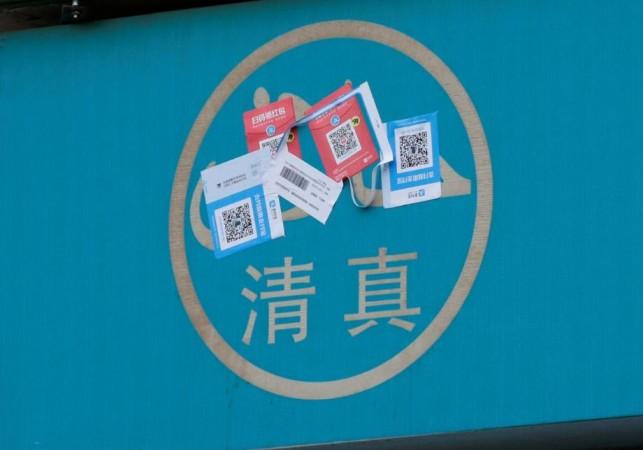
In an effort to "Sinicise" the Chinese Muslim population, authorities in Beijing have ordered the halal restaurants and food stalls to remove Arabic script and Islamic symbols from their signs, according to reports.
Some 11 restaurants and shops in Beijing were instructed to remove Islamic symbolic representations, such as the crescent moon and "halal" written in Arabic, restaurant employees told Reuters.
"They said this is foreign culture and you should use more Chinese culture," said a manager of one of the restaurants. All staff members, including the owner of the shops, declined to reveal their names due to the sensitivity of the issue.
The campaign to Sinicise religion began with President Xi Jinping's policy in 2015 that called to push religions into embracing 'Chinese culture' and the ideology of the Chinese Communist Party (CCP).
Despite China having more than 20 million Muslims and Islam being officially recognised as one of the five religions in the country, recent crackdowns indicate that Chinese leadership is anxious towards Islam and Christianity.
"[We] should adhere to the direction of Sinicising religion in our country, and actively guide religion to adapt to a socialist society," the Chinese president said in a 2017 report.
China accepts Taoism as its only indigenous religion. Buddhism has been accepted as the true 'Chinese religion' by the CCP. The religion has integrated into the majority Han culture over generations.
The concentration of Muslims in Xinjiang, which has a significant Uighur population, has been a cause of concern for China due to the alleged Uighur ties with the East Turkestan Independence Movement (ETIM).
Ethnic tensions between the Uighur population and the majority Han Chinese in the Xinjiang province led to the 2009 riot, prompting further tightening.
Since then, Uighurs have carried out crude bomb attacks against Chinese controls, including an attack at a coal mine in 2015 by suspected Uighur militants in Xinjiang. The incident led to the retaliatory killing of 28 people by the Chinese police.
The Chinese authorities, on the other hand, have launched a crackdown on "terrorism" in Xinjiang in the past few years. The UN Committee on the Elimination of Racial Discrimination has claimed that two million Uighur and other Muslims are kept in contentious detention centres.
China has denied accusations of human rights violation and asserted that the facilities were "re-integration and re-education centres" to eliminate extremist operatives in the region.
In July, the Chinese government defended its actions in the Xinjiang province and claimed that the Uighur population were "forced" to adopt Islam "by religious wars and the ruling class", according to a white paper published by the State Council Information Office.









!['Had denied Housefull franchise as they wanted me to wear a bikini': Tia Bajpai on turning down bold scripts [Exclusive]](https://data1.ibtimes.co.in/en/full/806605/had-denied-housefull-franchise-they-wanted-me-wear-bikini-tia-bajpai-turning-down-bold.png?w=220&h=138)



